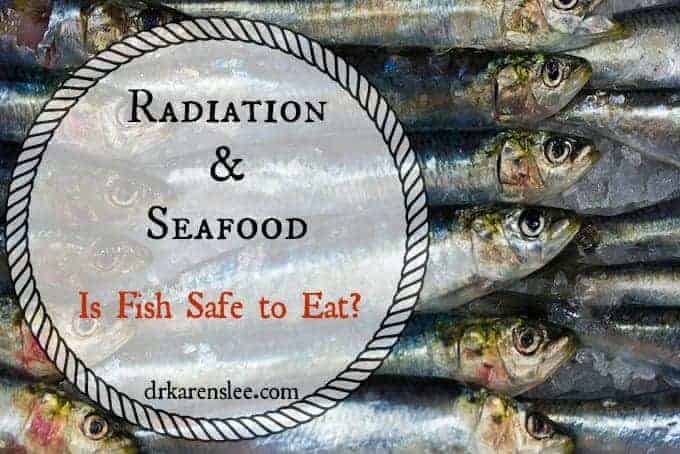
That's a rightful concern and I should have added the info with the recipe. Here are my thoughts on fish and radiation.
Radiation and Seafood: Is Fish Safe to Eat?
- Personally, I eat a variety of fish, once or twice a week, from a reputable fishery that sells wild caught fish. I vary the type of fish I eat so I'm not eating just one species from one area of the ocean. So the chance of repeated contamination of the same radioactive material is less.
- You have to eat a large amount of fish, and often, to be exposed to the dangerous level of radiation. Chris Kresser has a great article (with citations) on how much fish you would have to eat in order for the radiation exposure to be a level of concern. For example, you'd have to eat ¾ lb. of contaminated bluefin tuna a day for the entire year to receive only 12% of the radiation you'd get from flying from LA to NY. That's a lot of fish and for a small percentage of radiation compared to flying across the country.
- There were some trace evidence of radioactive isotopes in albacore tuna off of the Oregon coast in April, 2014, from Japan's Fukushima nuclear meltdown in 2011. But according to the assistant researcher at Oregon State University, "A year of eating albacore with these cesium traces is about the same dose of radiation as you get from spending 23 seconds in a stuffy basement from radon gas". In other words, we are naturally exposed to radioactive agents and even if we eat fish contaminated with a trace amount of it, it still won't add up to the amount needed for us to be concerned with.
- Know your source of fish. Like I said in my last newsletter, I get my salmon from a fishery in Alaska directly and the owner has reassured me that they test the inlet frequently where they fish and they are safe. And I trust them. I doubt they'd want to eat contaminated fish themselves. I also buy my fish from a fish monger at the local farmers market. FYI. I would never trust buying fish from supermarkets without knowing what the source is. Some supermarkets label where the fish is from but many don't.
- Occasionally, I buy from Whole Foods where there is a Sustainable Seafood Rating System for their seafood. They sell wild caught seafood from fishers that are certified sustainably by Marine Stewardship Council (MSC) or rated either "Green" or "Yellow" by the Monterey Bay Aquarium Seafood Watch program and The Safina Center (formerly Blue Ocean Institute.)
So the bottom line is that the side effect of NOT eating fish is greater than the amount of radiation exposure you'd get from eating fish once or twice a week. Still, I'd stay away from large fish like Bluefin tuna since it's on the "Red" fish to avoid on the Monterey Bay Aquarium Seafood Watch list.
By the way, Oceana.org conducted a study on mislabeling of fish fraudulently. Here is the National Seafood Fraud Testing Results report for you to download so you are not duped when buying fish or eating out.
Image: Vintagedept via Flickr

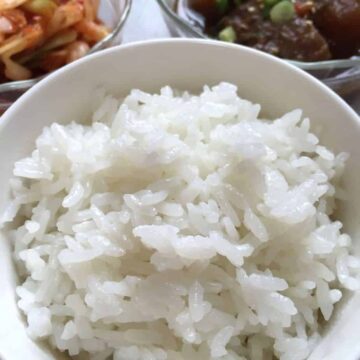
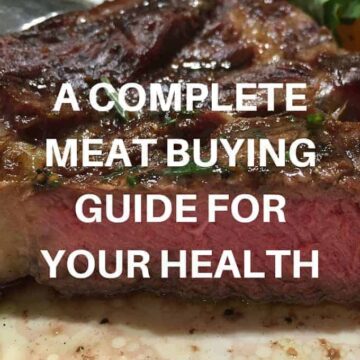
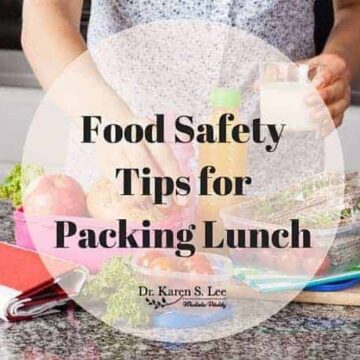
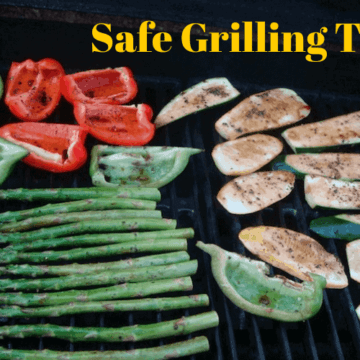
Raine Saunders says
I'm grateful for mindful fishing practices and resources such as the Monterey Bey Aquarium. I have referred to their site for years and seek out the safest sources available. I firmly believe that fish are some of the most nutrient-dense choices we can make, and we can feel safe knowing a number of well-informed professionals like yourself endorse this viewpoint.
Dr. Thomas Cowan, M.D. believes that one of the best ways to mitigate the effects of radiation - which we are exposed to everywhere, not just in seafood - is by consuming fermented foods.
http://www.westonaprice.org/holistic-healthcare/protection-from-radiation-sickness/
If we maintain digestive and immune health by eating these foods and maintaining lifestyle habits which minimize exposure to toxins, we can avoid effects of radiation and other issues.
Here is a two-part research project I produced on this topic. I also talk about the fact that a majority of fish contain selenium which has been scientifically observed to chelate mercury from the body. If we eat these types of fish, we need not be concerned about mercury exposure:
https://nourishingourchildren.wordpress.com/2012/10/09/should-we-avoid-fish-because-of-mercury/
https://nourishingourchildren.wordpress.com/tag/mercury-in-fish/
retrohousewife5 says
Like Eco Novice I always use the Seafood Watch app when shopping for fish. We don't eat a ton of it but we do enjoy it sometimes and I like to get the safest and most ethical sources I can.
Eco novice says
I definitely refer to the Seafood Watch list by Monterey Bay Aquarium whenever buying fish. The comparisons to other everyday radiation exposures is very useful. These days, it's hard to find something to eat that doesn't have SOME downside, at least in the animal kingdom ; )
lorialper1 says
Phew. I can't imagine NOT eating fish. I'm always careful about the type of fish I purchase and try to eat many varieties. I agree, knowing where your fish comes from is key.